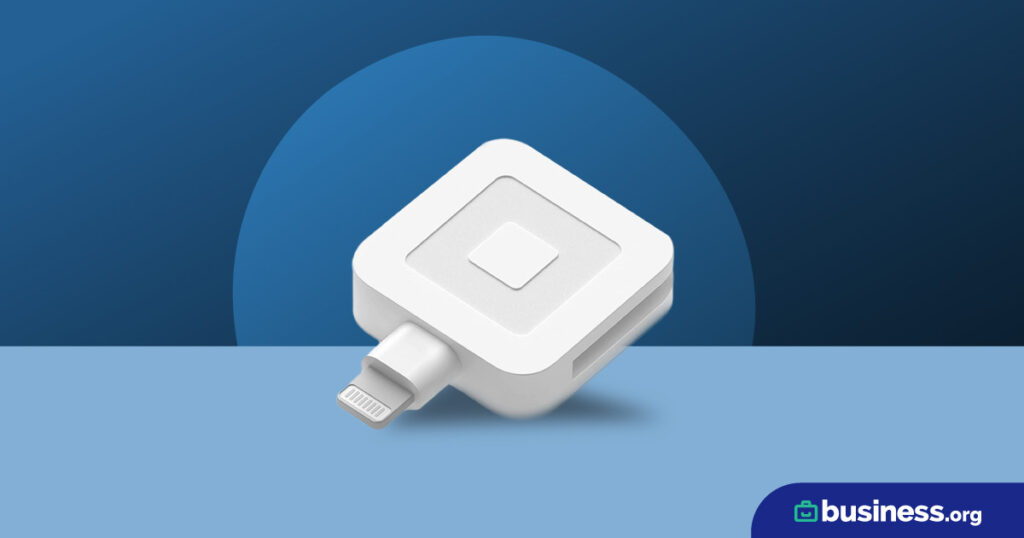We are committed to sharing unbiased reviews. Some of the links on our site are from our partners who compensate us. Read our editorial guidelines and advertising disclosure.
What Are Interchange Fees?
Interchange fees are the basic costs associated with processing a credit card. Every time a transaction is made, an interchange fee is assessed. The cost of these fees varies based on a lot of factors. Because of this, it’s common for merchants (like your business) to pay many different interchange rates, and that’s why you may see a bunch of rates on your monthly processing statement.
Interchange rates are complicated. But we’ll take you through the basics to help these fees make more sense.
How do interchange fees work?
The way interchange rates work is based on how credit cards are processed. When a credit card is swiped, there are a few key players that make that payment possible.
The three main players in credit card processing
First, there is the card-issuing bank. This bank is responsible for issuing credit cards and setting interchange rates. Common credit card issuers include MasterCard, American Express, and Visa. These card issuers provide credit cards to our second important player: the cardholder.
When a cardholder goes to a store and swipes a credit card to make a purchase, our third player finally comes into the picture: the credit card processor. The credit card processor is the middleman between the cardholder and every card-issuing bank.
Where interchange fees actually come from
When a card is swiped on a terminal, that terminal communicates with the processing company. The processing company is responsible for routing that transaction to the proper card-issuing bank that will enable the transaction. It’s at this moment that the interchange fee is assessed.
The card-issuing bank will charge the credit card processor an interchange fee based on certain transaction-based parameters, and that processor will then choose a way to pass that fee along to the business taking the payment from the customer.
How credit card processors pass on interchange fees
Because credit card processors are dealing with hundreds of interchange rates, it can be tricky to decide how to pass those costs to the merchant. There are a couple of different pricing structures credit card processing companies use.
Flat-rate pricing is when you get charged the same fee for every transaction. These fees will combine a percentage of the total purchase price with a small standard charge—like 2.7% + 5¢ per transaction.
Interchange-plus pricing is exactly what it sounds like. You’re charged the interchange rate plus a little extra for the processing company. This fee will often take the form of interchange + 30¢ or interchange + 0.5% + 15¢ (though rates will vary).
In addition to this pricing structure, some processing companies charge a monthly fee. No matter how the processor approaches it, these fees and pricing structures provide a way to cover interchange costs and ensure your processor gets paid for their services.
By signing up I agree to the Terms of Use and Privacy Policy.
Are interchange fees negotiable?
Interchange fees cannot be negotiated. They are set by credit-issuing banks and are standard across all processing providers.
Processing costs, on the other hand, can sometimes be negotiated. You’ll never be able to negotiate a rate below interchange costs with your processing provider because you’d essentially be asking that provider to work for free.
But certain providers will let you negotiate your rates depending on your monthly processing volume and other aspects of your business.
Can you avoid interchange fees?
Not if you plan on accepting credit cards. The only way to truly avoid processing fees is to accept cash only. The only fees for cash-only transactions? Gas to drive your money to the bank. And the cost of turning down patrons who only carry plastic.
But if you accept plastic, you have to get used to interchange fees. They come with the territory, and they’re the cost of doing business with credit card issuers.
Some businesses choose to pass processing costs onto the consumer through surcharges and convenience fees or by marginally increasing the price of their goods. While this isn’t always a recommended practice, it is a way to deal with interchange rates.
What are the current interchange rates?
Interchange rates are subject to change when card-issuing banks decide to change them. Each card issuer has a model for assessing fees that’s based on a number of purchase factors:
- Type of business accepting transactions
- How payment is accepted—swiped, keyed, or otherwise
- The total cost of sale
- Type of credit card used
These, in addition to a few other specific factors, will determine the interchange rate of a given transaction. Most credit card companies, like Visa and Mastercard, will announce changes to interchange rates and publish them online.
But as a merchant, you don’t have to worry about keeping up with the changes. It’s usually on the credit card processing company to keep track of these rates.
The takeaway
Interchange fees are a necessary part of processing credit card transactions. They are assessed by credit-issuing banks to card processing companies that then pass the cost onto the businesses accepting the credit cards.
Sometimes businesses choose to pass processing costs onto the consumer, but this isn’t always a recommended practice. Interchange fees can’t be avoided if a business wants to accept credit cards, but those fees can be a comparatively small price for allowing customers flexible payment options.
Sometimes you have to spend a little money to make a lot of money.
If you’re currently comparing processing rates, you might want to take a look at our recommendations for the best processing providers of 2020. We compare rates to help you save on processing costs.
Disclaimer
At Business.org, our research is meant to offer general product and service recommendations. We don't guarantee that our suggestions will work best for each individual or business, so consider your unique needs when choosing products and services.



